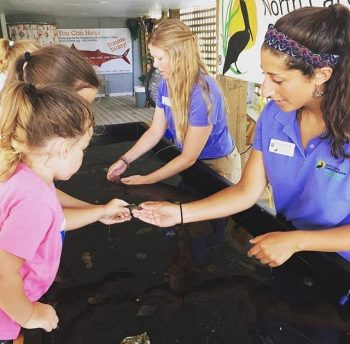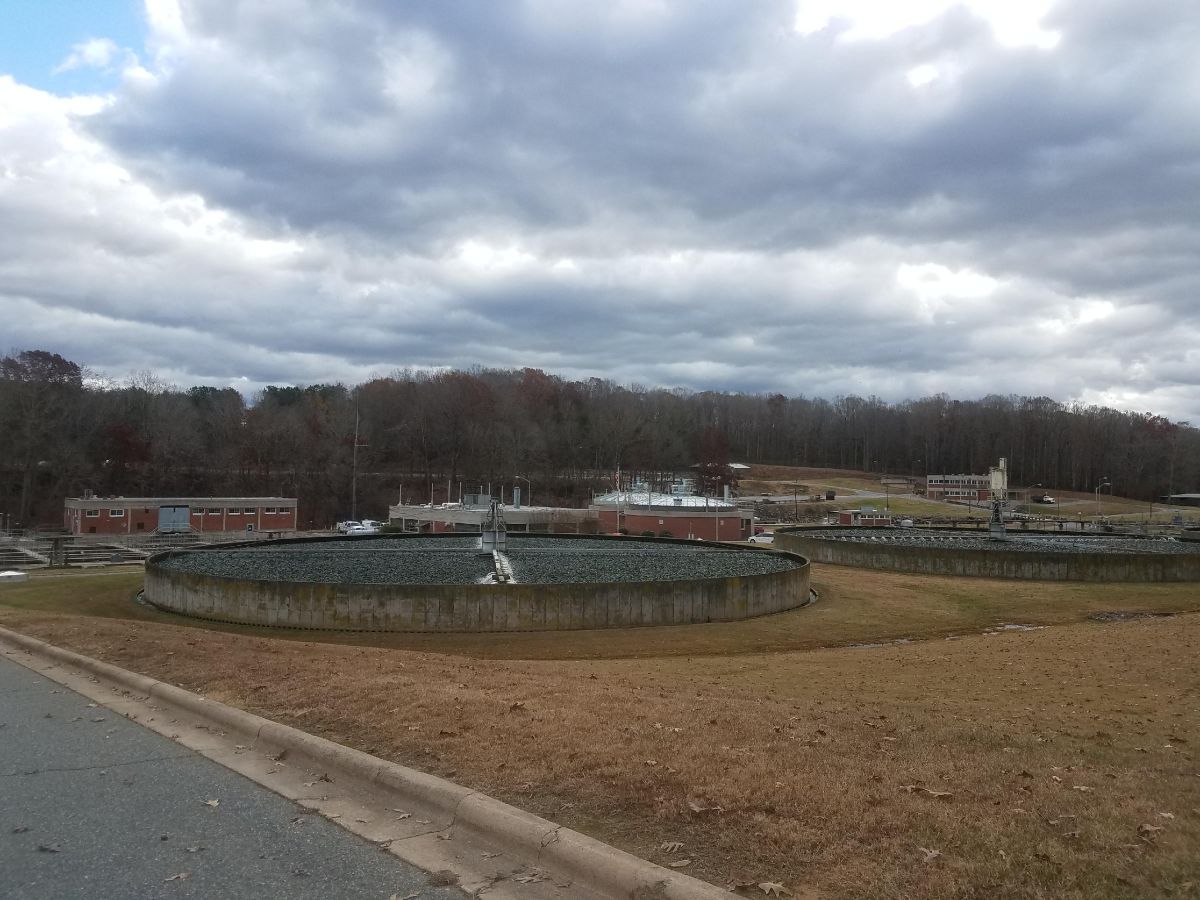WANCHESE – Erica Connery spends hours every week working with children, teaching them about the coast through hands-on activities, marine debris crafts and educational school visits.

She does all this as an AmeriCorps national service member, where she serves with the North Carolina Coastal Federation’s Wanchese office as a community engagement specialist.
Supporter Spotlight
The Americorps program is run through the Corporation for National and Community Service, or CNCS, a federal agency that engages Americans in community service – and it’s an agency targeted for elimination in President Trump’s proposed budget.
The Trump administration proposed cutting funding to the independent agency in its 2018 budget blueprint. Under the current budget, the agency was allocated $1.1 billion. AmeriCorps, which is also known as the domestic Peace Corps, is one of several programs the agency is involved with, including Teach for America and Senior Corps, which creates service opportunities for senior citizens in their communities.
Congress approved on Friday a continuing resolution that would give lawmakers another week to negotiate a final budget while avoiding a government shutdown.
In early April, more than 4,520 local leaders – mayors, county officials, tribe leaders – participated in a nationwide effort to support the AmeriCorps program, representing 194 million Americans, about two-thirds of the country’s population.
The AmeriCorps program was created under the Clinton administration and its funding has waxed and waned under subsequent administrations. During the Obama administration, the program was funded enough to retain about 80,000 members, fewer than the president’s goal of 200,000, and Obama spoke openly and often about his support for the program.
Supporter Spotlight
The Trump Administration gave Congress a document late in March, recommending what programs should be cut to reallocate funds for defense spending. CNCS and the programs that fall under the agency, it wrote, is not a necessary role of the federal government.
“It is not a core function of the federal government to promote volunteerism, and therefore, these programs should be eliminated,” the Trump administration wrote. “To the extent these activities have value, they should be supported by the private and nonprofit sectors.”
AmeriCorps on the Coast
AmeriCorps currently places more than 80,000 of its members of all ages and backgrounds in nonprofit and community organizations for 10-month or year-long terms all over the country, where they, as the organization’s motto notes, “get things done.” AmeriCorps says its members work on projects ranging from economic development to medical assistance to teaching programming code to coal miners.
Members receive a stipend to cover living expenses, never more than approximately $12,000.
In coastal North Carolina, AmeriCorps members can be found working on environmental issues.
The Conservation Trust for North Carolina is a host organization and placed members in 13 other organizations throughout the state in 2017. On the coast, it has seven members at three host sites: the North Carolina Coastal Federation, the North Carolina Coastal Land Trust and the University of North Carolina at Wilmington, where the members have logged more than 10,000 total hours of service. About 7,500 of those hours were in environmental education – the work Connery has been doing.
Nick DiColandrea, the Conservation Trust’s AmeriCorps project director, said environmental education and outreach are among the trust’s biggest goals with coastal members.
“Our overall goal is to provide environmental education to underserved populations,” he said. “So our members from the coast, looking at the coast as one entity, they’re going out and serving individuals, seniors, those who are disabled, those who might have not had access to the waterways or to the ocean – the opportunity to learn more about the state that they live in.”
Connery’s work with the federation reflects that. Along with environmental education activities, including site field trips to places like Jockey’s Ridge State Park, she serves as a tutor to a group of local children, helping them with their homework and reading. She has completed approximately 2,500 service hours and will wrap up her second term at AmeriCorps in May.

Another federation AmeriCorps member, Nina Quaratella, at the organization’s Wrightsville Beach office, has also completed roughly 2,500 service hours and will finish her second AmeriCorps term in May. One of the projects she works on is Touch Tank Tuesday, a weekly educational program during the summer that allows area children to learn about and interact with marine life from the sound.
Other activities the Conservation Trust’s AmeriCorps members have worked on include crafts, litter cleanups and activities that promote what DiColandrea calls “positive behavior change that leads to a more clean and safe environment for everybody.”
He cites an example of a time AmeriCorps members at UNCW built an inflatable whale by hand to show school students what the inside of a whale looked like. It was an effort to demonstrate how marine debris is harmful to marine life.
In other parts of the states, the Conservation Trust’s members also provide environmental education services for the organizations they work with. For example, in the state’s mountains, programs revolve around preventing wildfires, protecting trees and educating the public about birds of prey.
DiColandrea said that all these experiences provide members with work experience and leadership skills.
“Their confidence level in themselves really grows to a level that allows them to find full-time employment, to find meaningful jobs and purposes after they’re finished,” he said. He added that for nonprofits, AmeriCorps members provide extra bandwidth and staff resources for budgets that are often tight.
Connery, with the federation, had a quick response when asked about what she appreciates most about her time with AmeriCorps.
“Being able to gain work experience at a real nonprofit,” Connery said, adding that she enjoyed learning about environmental education, a profession she had previously been interested in exploring. Connery said she hopes to continue working in these fields.
DiColandrea said that AmeriCorps members are not just interns or volunteers, but that they’re individuals committed to giving back to the communities they serve in on a full-time basis, with very little in return.
“They are service members to the states and to the country,” he said.








